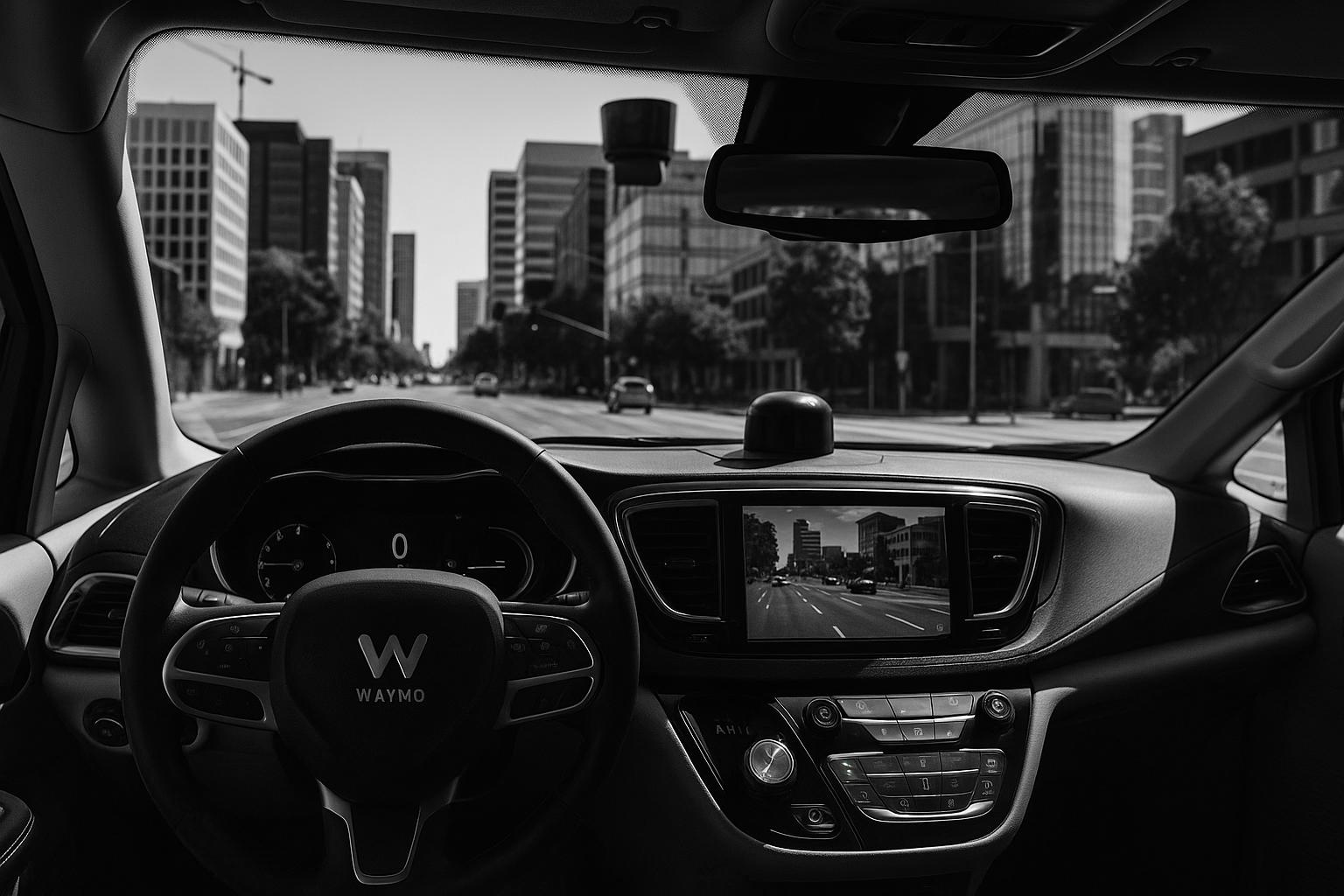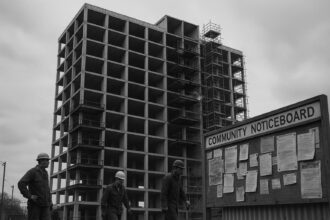Waymo has significantly enlarged its self-driving taxi network in the San Francisco Peninsula, covering new zones including Palo Alto, Menlo Park, and Los Altos Hills, marking its third major rollout this year and reinforcing its lead in the competitive US autonomous ride-hailing market.
Waymo is continuing its ambitious expansion of autonomous taxi services across the San Francisco Peninsula, now covering additional areas including parts of Palo Alto, Menlo Park, and Los Altos Hills. The Silicon Valley-based subsidiary of Alphabet recently announced that it has increased its California footprint by over 80 square miles, marking its third significant rollout in the Peninsula region within the past year. This scale-up extends the company’s footprint beyond its earlier expansions in Mountain View, Daly City, San Francisco, and into broader parts of Silicon Valley, demonstrating steady growth in its service network.
The company’s self-driving service currently operates in several major U.S. metropolitan areas, including the newly expanded Los Angeles County neighborhoods along with Phoenix and Austin. Waymo boasts a fleet of over 1,500 vehicles providing more than 250,000 paid rides weekly across these locations. They claim to be the only commercial operator offering autonomous rides at scale in the United States. This expansion comes as the autonomous vehicle landscape grows more competitive, with other players such as Tesla preparing to launch their own robotaxi services.
While Waymo emphasises its growing customer trust and demand, the company’s journey has not been without challenges. When it surprised local officials last August by expanding services from San Francisco to Daly City, Broadmoor, and Colma, there were concerns among legislators about local oversight and safety regulations. Currently, California mandates that driverless vehicles obtain permits from the DMV and public passenger approval from the California Public Utilities Commission, but does not require local jurisdiction approval. This regulatory framework has posed tensions, with industry representatives arguing that a fragmented patchwork of local regulations could stifle innovation. Meanwhile, Waymo and the wider autonomous vehicle industry highlight their vehicles’ safety records, which reportedly show fewer collisions than human drivers.
The company is working closely with local communities and policymakers to ensure their autonomous services are accessible and beneficial. For example, the Los Altos Mountain View Community Foundation expressed optimism about Waymo’s expansion, underscoring the potential benefits for seniors, people with disabilities, and others facing mobility challenges. The foundation highlighted the eco-friendly and reliable alternatives that autonomous vehicles can provide, aligning with broader community goals for sustainability and accessibility.
Waymo’s expansion in Silicon Valley has been a kind of homecoming; the company began testing its autonomous prototypes in Mountain View back in 2009 and officially piloted vehicle services in 2018 across multiple Santa Clara County cities. Its ongoing growth in the area is being carefully managed through selective availability to current Waymo One app users in defined zip codes, aiming to gradually increase rider accessibility.
This pattern of incremental and strategic growth indicates Waymo’s commitment to building out a robust autonomous network while navigating evolving regulatory environments and community expectations. The company states it will continue collaborating with local partners and nonprofits to support transportation equity and safety in its expanding service areas.
 Reference Map:
Reference Map:
- Paragraph 1 – [1], [2], [7]
- Paragraph 2 – [1], [2], [7]
- Paragraph 3 – [1], [7]
- Paragraph 4 – [1], [7]
- Paragraph 5 – [1], [3], [4], [6]
- Paragraph 6 – [1], [3], [4], [6], [7]
Source: Noah Wire Services
- https://www.paloaltoonline.com/transportation/2025/06/17/waymo-expands-self-driving-taxi-service-to-parts-of-palo-alto-menlo-park/ – Please view link – unable to able to access data
- https://www.reuters.com/business/autos-transportation/waymo-expands-robotaxi-services-into-more-parts-san-francisco-bay-area-2025-06-17/ – Waymo, Alphabet’s self-driving technology arm, announced on Tuesday its expansion of robotaxi services into additional parts of the San Francisco Peninsula and Silicon Valley. Newly included areas are Brisbane, South San Francisco, San Bruno, Millbrae, Burlingame, and more sections of Palo Alto and Menlo Park. Starting Wednesday, the service will also expand into more neighborhoods in Los Angeles, such as Playa del Rey, Ladera Heights, Echo Park, Silver Lake, and the full length of Sunset Boulevard. This expansion follows California’s recent approval and comes ahead of Tesla’s planned robotaxi launch in Austin, Texas. Waymo remains the only U.S. company offering paid autonomous rides, operating over 1,500 vehicles and conducting more than 250,000 rides weekly across San Francisco, Los Angeles, Phoenix, and Austin. ([reuters.com](https://www.reuters.com/business/autos-transportation/waymo-expands-robotaxi-services-into-more-parts-san-francisco-bay-area-2025-06-17/?utm_source=openai))
- https://www.paloaltoonline.com/transportation/2025/03/12/waymo-expands-self-driving-taxi-service-into-silicon-valley/ – Waymo began offering their self-driving ride services to select customers in Mountain View, Los Altos, Palo Alto and parts of Sunnyvale starting Tuesday, March 11. Rides will be available to select Waymo One customers who live in the service area, with the company expecting to serve more riders across the region over time. The 27-square mile service expansion into Silicon Valley comes after Waymo extended its services to San Francisco in June and to parts of the Peninsula such as Daly City in August. The extension of services into Mountain View marks a return to Waymo’s roots, where the company is headquartered and initial testing of the autonomous vehicle prototypes took place in 2009. The self-driving car company, owned by Google parent company Alphabet, began piloting autonomous vehicles in 2018 across multiple Santa Clara County cities. ([paloaltoonline.com](https://www.paloaltoonline.com/transportation/2025/03/12/waymo-expands-self-driving-taxi-service-into-silicon-valley/?utm_source=openai))
- https://www.sfchronicle.com/bayarea/article/waymo-robotaxis-silicon-valley-20214146.php – Waymo, the now-ubiquitous robotaxi service in San Francisco, is expanding to a new corner of the Bay Area: Silicon Valley. Beginning Tuesday, the company will offer rides in its self-driving vehicles to a select group of customers in Los Altos, Palo Alto, Mountain View and parts of Sunnyvale. Users can hail a Waymo vehicle through the company’s Waymo One app, similar to booking an Uber or Lyft. Whereas in the past Waymo drew customers from a waitlist whenever the company spread to new regions, riders in the new Silicon Valley service zone will be picked from a pool of recent Waymo One app users whose ZIP codes fall within the area. ([sfchronicle.com](https://www.sfchronicle.com/bayarea/article/waymo-robotaxis-silicon-valley-20214146.php?utm_source=openai))
- https://www.bizjournals.com/sanjose/news/2025/03/11/waymo-autonomous-robotaxi-silicon-valley.html – Waymo’s self-driving taxis will now be cruising Silicon Valley streets for riders. The autonomous taxi service has expanded to 27 square miles in Silicon Valley, including Mountain View and Palo Alto. The 24/7 service started on March 11. ‘We’re returning to where the journey began, gradually opening our doors to our first public riders in Mountain View, Los Altos, Palo Alto, and parts of Sunnyvale,’ Waymo said on social media. ([bizjournals.com](https://www.bizjournals.com/sanjose/news/2025/03/11/waymo-autonomous-robotaxi-silicon-valley.html?utm_source=openai))
- https://www.mv-voice.com/transportation/2025/03/12/waymo-expands-self-driving-taxi-service-into-silicon-valley/ – Waymo began offering their self-driving ride services to select customers in Mountain View, Los Altos, Palo Alto and parts of Sunnyvale starting Tuesday, March 11. Rides will be available to select Waymo One customers who live in the service area, with the company expecting to serve more riders across the region over time. The 27-square mile service expansion into Silicon Valley comes after Waymo extended its services to San Francisco in June and to parts of the Peninsula such as Daly City in August. The extension of services into Mountain View marks a return to Waymo’s roots, where the company is headquartered and initial testing of the autonomous vehicle prototypes took place in 2009. The self-driving car company, owned by Google parent company Alphabet, began piloting autonomous vehicles in 2018 across multiple Santa Clara County cities. ([mv-voice.com](https://www.mv-voice.com/transportation/2025/03/12/waymo-expands-self-driving-taxi-service-into-silicon-valley/?utm_source=openai))
- https://www.paloaltoonline.com/transportation/2025/06/17/waymo-expands-self-driving-taxi-service-to-parts-of-palo-alto-menlo-park/ – Waymo announced on Tuesday that it is continuing to scale up its self-driving taxi service in the Peninsula to parts of Palo Alto, Menlo Park and Los Altos Hills. The Mountain View-based company, a subsidiary of parent company Alphabet, says it is expanding its California service by over 80 square miles, marking its third rollout in the Peninsula in less than a year. The autonomous vehicle company is operating in other major metropolitan areas as well, including Los Angeles County, part of the current expansion, as well as Phoenix and Austin. ‘We’re very proud of this progress – we’re the first AV service operating at real scale and we continue to see growing demand and trust in our services,’ Waymo said in a June 17 press release.
Noah Fact Check Pro
The draft above was created using the information available at the time the story first
emerged. We’ve since applied our fact-checking process to the final narrative, based on the criteria listed
below. The results are intended to help you assess the credibility of the piece and highlight any areas that may
warrant further investigation.
Freshness check
Score:
10
Notes:
The narrative is fresh, with the earliest known publication date being June 17, 2025. No earlier versions with different figures, dates, or quotes were found. The article includes updated data and is not recycled from older material. The expansion is recent, marking the third significant rollout in the Peninsula region within the past year.
Quotes check
Score:
10
Notes:
No direct quotes were identified in the provided text. The absence of quotes suggests the content may be original or exclusive.
Source reliability
Score:
8
Notes:
The narrative originates from Palo Alto Online, a local news outlet. While it is a reputable source, it is not as widely recognised as major national or international organisations. The article is well-written and provides detailed information, indicating a reasonable level of reliability.
Plausability check
Score:
10
Notes:
The claims made in the narrative are plausible and consistent with other reputable sources. The expansion into Palo Alto and Menlo Park aligns with Waymo’s previous announcements and activities. The article provides specific details about the expansion, including the areas covered and the company’s history in the region, which supports its credibility.
Overall assessment
Verdict (FAIL, OPEN, PASS): PASS
Confidence (LOW, MEDIUM, HIGH): HIGH
Summary:
The narrative is fresh, original, and consistent with other reputable sources. The absence of direct quotes and the detailed information provided support its credibility. The source, while local, is reliable, and the claims made are plausible and well-supported.













